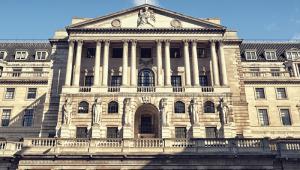Public sector net borrowing was in surplus by £2bn in July 2018 - with the Treasury receiving more money in tax than it spent on public services - according to data from the Office for National Statistics, released yesterday.
This was greater than the £1bn surplus for the same month last year and City economists’ forecast for this July of £1.1bn.
Public sector net borrowing, excluding public sector banks, was also at a 16 year low in the second quarter of this year, being £8.5bn less in April to July this year (£12.8bn) than the same period in 2017.
The ONS figures showed public sector net borrowing for the last financial year was the lowest for 11 years, being £39.4bn between April 2017 and March 2018 - £6.4bn less than in the previous financial year.
Last financial year’s public sector net borrowing was also £5.8bn less than the Office for Budget Responsibility’s expectations.
A Treasury spokesperson said: “Thanks to the hard work of the British people, government borrowing is down by three quarters and debt is due to begin its first sustained fall in a generation.
“But we cannot be complacent, and we must keep debt falling to build a stronger economy and secure a brighter future for the next generation.”
The independent Office for Budget Responsibility was also cautious.
It its response, the OBR said: “It is still too early in the financial year to draw meaningful conclusions about trends in departmental spending for the year as a whole”.
The ONS said that its figures on public sector finances, which are released monthly, were buoyed by revenue raised through self-assessed income tax, which was expected.
The statistical body said: “In both January and July, accrued receipts are particularly high due to receipts from self-assessed income tax”.
Receipts from self-assessed income were £9bn in July 2018 - an increase of £1bn on July 2017.
Chief economist at PriceWaterhouseCooper John Hawksworth said the news gave chancellor Phillip Hammond “more wiggle room when it comes to the budget in November”.
But he added: “He will still have some tough choices to make, probably including some tax rises, if he is to fund planned increases in NHS spending and to respond to other pressing demands to ease austerity for schools, local councils, prisons, police and other public services.”
Unite leader Len McCluskey said: “It is high time that the purse strings were loosened to start rebuilding public services and our infrastructure for the overall benefit of the UK.
“Increased investment in the NHS, education, housebuilding, local government and transport links is not only now urgently needed, there is also absolutely no excuse for the government not to do so.”











